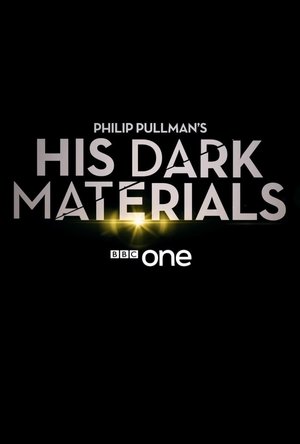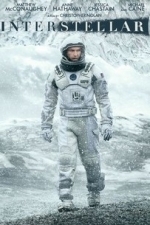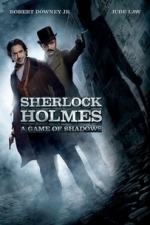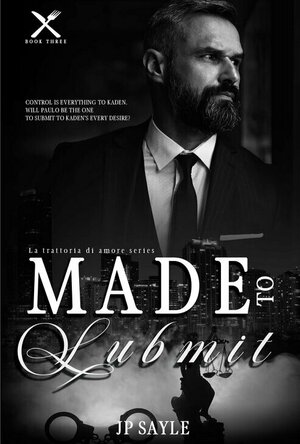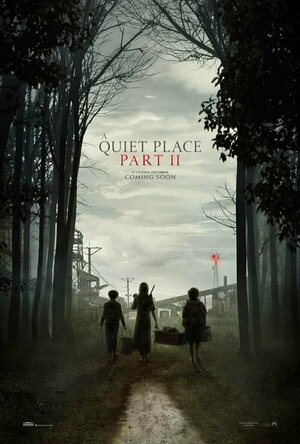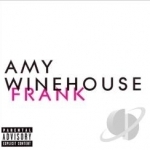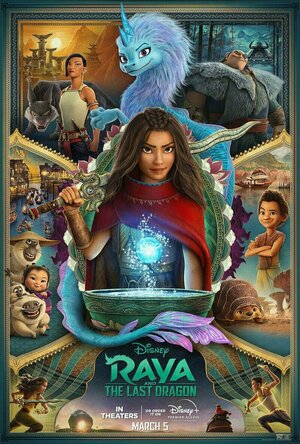Search
Search results
Kirk Bage (1775 KP) rated His Dark Materials in TV
Mar 3, 2020
Any fan of Phillip Pullman’s epic trilogy will tell you that His Dark Materials is one of the best stories ever told. There is so much scope to adapt and interpret the narrative, so rich are the textures, characterisation and pure weight of its many themes. Which is perhaps why any re-imagining will always come under such intense and divisive scrutiny.
The American studio version, patronisingly renamed The Golden Compass for the hard of thinking, was absolutely woeful, despite some canny casting. Choosing to focus too much on the potential of spectacular effects, rather than concentrating on the key elements of plot that make Northern Lights the perfect exposition for a much larger message.
You could always trust the BBC in conjunction with HBO not to make that same mistake. Which is why this version largely succeeds, regardless of some valid criticism concerning clunky dialogue and some creative re-arranging of events from the book. Yes, there is still a lot of telling rather than showing, in an attempt to engage an audience that have yet to read the source material; but, really, it didn’t bother me at all.
Casting Logan’s Dafne Keen as Lyra was the first stroke of genius. This girl has some serious potential, and, as the episodes unfold, she more than holds her own against more experienced actors in key roles. Her presence is a driving force from the get go that at times left me breathless at just how much she understands this complex young character. Truly exciting for the next chapter…
Of course, Ruth Wilson is more than capable of fulfilling the nuance of the sinister Mrs Coulter. And James McAvoy does an admirable job also, in a pivotal, but thankless role (for now) as Lord Asriel. But, no part is neglected, in this cast of dozens, which depends hugely on the idea of adults trying to control a world (eventually many worlds) in crisis!
The casting throughout is immensely bold – hardly a single actor matched my inner vision of them from the book, but the more I came to trust the production, the more I appreciated the clever choices made in this respect. Again, story-telling is always more important than spectacle, and episode to episode I simply began to believe in this version whole-heartedly – and I include in that all the voice actors who bring to life the demons, bears and all other CGI characters.
It is easy to gripe about what is wrong about it all. I can’t ever imagine a perfect visual re-telling of HDM that doesn’t disappoint at some level… but, more important to see what is very right about it! I felt moved, shocked, excited and elated at all the right moments! Basically, I got onboard and allowed myself to enjoy the story.
And what a story! Northern Lights exists as a phenomenon on its merits, but The Subtle Knife is where the themes of this idea really take off! Almost a year to wait for the next season… All I can say is, what an opportunity to make this one of the best things BBC has ever done.
Too many debating points for a brief summary. Keep watching is all I would say to anyone. Or perhaps I just want it too much…
The American studio version, patronisingly renamed The Golden Compass for the hard of thinking, was absolutely woeful, despite some canny casting. Choosing to focus too much on the potential of spectacular effects, rather than concentrating on the key elements of plot that make Northern Lights the perfect exposition for a much larger message.
You could always trust the BBC in conjunction with HBO not to make that same mistake. Which is why this version largely succeeds, regardless of some valid criticism concerning clunky dialogue and some creative re-arranging of events from the book. Yes, there is still a lot of telling rather than showing, in an attempt to engage an audience that have yet to read the source material; but, really, it didn’t bother me at all.
Casting Logan’s Dafne Keen as Lyra was the first stroke of genius. This girl has some serious potential, and, as the episodes unfold, she more than holds her own against more experienced actors in key roles. Her presence is a driving force from the get go that at times left me breathless at just how much she understands this complex young character. Truly exciting for the next chapter…
Of course, Ruth Wilson is more than capable of fulfilling the nuance of the sinister Mrs Coulter. And James McAvoy does an admirable job also, in a pivotal, but thankless role (for now) as Lord Asriel. But, no part is neglected, in this cast of dozens, which depends hugely on the idea of adults trying to control a world (eventually many worlds) in crisis!
The casting throughout is immensely bold – hardly a single actor matched my inner vision of them from the book, but the more I came to trust the production, the more I appreciated the clever choices made in this respect. Again, story-telling is always more important than spectacle, and episode to episode I simply began to believe in this version whole-heartedly – and I include in that all the voice actors who bring to life the demons, bears and all other CGI characters.
It is easy to gripe about what is wrong about it all. I can’t ever imagine a perfect visual re-telling of HDM that doesn’t disappoint at some level… but, more important to see what is very right about it! I felt moved, shocked, excited and elated at all the right moments! Basically, I got onboard and allowed myself to enjoy the story.
And what a story! Northern Lights exists as a phenomenon on its merits, but The Subtle Knife is where the themes of this idea really take off! Almost a year to wait for the next season… All I can say is, what an opportunity to make this one of the best things BBC has ever done.
Too many debating points for a brief summary. Keep watching is all I would say to anyone. Or perhaps I just want it too much…
Gareth von Kallenbach (980 KP) rated Interstellar (2014) in Movies
Aug 6, 2019
For my money, Christopher Nolan is the best director and storyteller in the film industry today. Over the years he has grown with each film he has created. In his early work, like Following, Memento, and Insomniac, he experimented with different notions of how we as an audience perceived a story unfold on film. In each of those films he learned techniques that he carried with him as he moved onto bigger commercial success’ like The Dark Knight Trilogy and The Prestige. All of those techniques, culminated in my humble opinion, his masterpiece with 2010s Inception. Now he is back, with a space exploration film for this generation that rivals Stanley Kubrick’s 2001: A Space odyssey with an added dash of 1997s Contact.
Everything you expect from a Nolan film his here. Stunning visuals that not only leave us breathless at the vastness and beauty of space and other worlds, but also character driven framing that is subtle enough for us to be able to understand and focus on this character driven story. We are driven forward by one man’s mission to save the earth, but on a more humanizing level, his family. It is this constant thread, especially the bond of Love between a father and daughter, which holds this majestic film together from start to finish. Those who miss this focus or nitpick at the science of it all may be disappointed and feel the film is too big to be concluded with such a simple notion. However those who are willing to concede that impressive visuals do not need to be concluded on an ostentatious scale for there to be a grandiose impact, will find satisfaction at a film that makes us contemplate our place in time and space.
If these stunning visuals are the face of this film, then the score is undoubtedly the emotion. Nolan once again teams up with Academy Award winning composer Hans Zimmer, to produce a stunningly moving and heartfelt score that not only propels forward in our exploration of the unknown, but at times is our only friend in letting us know it is ok to breath.
Perhaps it is just the gravity of the work that Nolan has done in the last few years, but the actors in this film know the stakes and each came to play. The cast each elevate their performances not only for themselves but for each other. Led by Academy Award Winner winners Mathew McConaughey and Anne Hathaway, as well as Academy Award Nominee Jessica Chastain, the entire cast of Interstellar deliver excellent performances that cause us not only relate, but to feel the world at large and the relationships with each other. I was especially impressed with the young Mackenzie Foy, whose relationship with McConaughey is crucial to the story being able to hold together for the entire film.
In closing, Interstellar is a beautiful film to behold with a story that revolves around exploration, survival, and love told in an epic way both visually and audibly. For some there may be a few make or break moments, but if you just focus on the story and world being told to you, it will all make sense. The film’s running time is 2 hours and 49 minutes which may seem like much to some, however because Interstellar is an experience, not just a film, the length is hardly noticeable as a bad thing. After walking away, you will want to see this experience in the theaters again, especially in IMAX for the best possible visuals and audio.
Everything you expect from a Nolan film his here. Stunning visuals that not only leave us breathless at the vastness and beauty of space and other worlds, but also character driven framing that is subtle enough for us to be able to understand and focus on this character driven story. We are driven forward by one man’s mission to save the earth, but on a more humanizing level, his family. It is this constant thread, especially the bond of Love between a father and daughter, which holds this majestic film together from start to finish. Those who miss this focus or nitpick at the science of it all may be disappointed and feel the film is too big to be concluded with such a simple notion. However those who are willing to concede that impressive visuals do not need to be concluded on an ostentatious scale for there to be a grandiose impact, will find satisfaction at a film that makes us contemplate our place in time and space.
If these stunning visuals are the face of this film, then the score is undoubtedly the emotion. Nolan once again teams up with Academy Award winning composer Hans Zimmer, to produce a stunningly moving and heartfelt score that not only propels forward in our exploration of the unknown, but at times is our only friend in letting us know it is ok to breath.
Perhaps it is just the gravity of the work that Nolan has done in the last few years, but the actors in this film know the stakes and each came to play. The cast each elevate their performances not only for themselves but for each other. Led by Academy Award Winner winners Mathew McConaughey and Anne Hathaway, as well as Academy Award Nominee Jessica Chastain, the entire cast of Interstellar deliver excellent performances that cause us not only relate, but to feel the world at large and the relationships with each other. I was especially impressed with the young Mackenzie Foy, whose relationship with McConaughey is crucial to the story being able to hold together for the entire film.
In closing, Interstellar is a beautiful film to behold with a story that revolves around exploration, survival, and love told in an epic way both visually and audibly. For some there may be a few make or break moments, but if you just focus on the story and world being told to you, it will all make sense. The film’s running time is 2 hours and 49 minutes which may seem like much to some, however because Interstellar is an experience, not just a film, the length is hardly noticeable as a bad thing. After walking away, you will want to see this experience in the theaters again, especially in IMAX for the best possible visuals and audio.
Gareth von Kallenbach (980 KP) rated Sherlock Holmes: A Game of Shadows (2011) in Movies
Aug 7, 2019
Robert Downey, Jr. and Jude Law return once again as Sherlock Holmes and Dr. Watson in “Sherlock Holmes: A Game of Shadows“. In this installment, a series of bombings across Europe has positioned the nations of the world on the brink of war. Holmes is convinced that there is a criminal mastermind behind the numerous, seemingly unrelated events and he believes it is renowned scholar James Moriarty (Jared Harris).
Watson, well-accustomed to Holmes’ eccentric and erratic behavior, is dubious of Holmes claims. Besides, Watson has his upcoming wedding to focus on, and only deigns to spend time with Holmes at the promise of a stag party at an upscale gentlemen’s club. While the bachelor party includes an entertaining Stephen Fry playing Holmes’ brother, Mycroft, Holmes has ulterior motives for taking Watson to this particular club. Early in the film, Holmes had cleverly intercepted a message from Irene Adler (Amy McAdams), that led him to a fortuneteller named Madam Simza Heron (Noomi Rapace), a woman Holmes believes has been targeted for death by Moriarty, who just happens to be working at the gentlemen’s club.
Eventually a meeting with Moriarty is arranged for Holmes. The two intellectuals spar with one another verbally in a civilized manner, with menacing undertones. Holmes isn’t able to convince Moriarty that Watson is no longer a partner in any of his endeavors and, Holmes is forced to take drastic measures to ensure the doctor and his new wife stay out of harm’s way. From Paris to Germany and other European locales, Holmes, Watson, and Simza and her gypsy friends race against time to uncover the diabolical plot that Moriarty has set for their demise in his quest to drive nations to war.
The film is an absolute delight and is a rare sequel that is even better than the previous film in the series. Robert Downey, Jr. and Jude Law have amazing chemistry with one another and their timing is absolutely perfect. The duo deftly mix action and comedy as well as the serious subject matter of the plot line and are utterly captivating and enjoyable to watch every step of the way. Rapace continues to impress in a much softer character than her Lisbeth Salandar role in the “Girl with the Dragon Tattoo” Swedish trilogy. and is poised to become one of Hollywood’s new leading ladies.
Having become familiar with Harris’ work on the series Mad Men, I was delighted to see him expertly portray such a complex character as Moriarty: a gentleman scholar of impeccable upbringing and education who is also a twisted and evil genius. Harris plays Moriarty perfectly and never lets you forget the dark and sinister side of him without ever becoming a campy or cartoony vaudeville villain.
Guy Ritchie returns as director and lets his stars carry the film. The action has been ramped up this time around with some spectacular action sequences but the action never overshadows the character-driven story. The film was well-paced and an absolute thrill ride from beginning to end mixing fantastic action and some great humor for a very winning combination that is not to be missed. I am already looking forward to future outings of Holmes and Watson on the big screen as this was a truly enjoyable experience that shows you how action comedies are supposed to be made.
Watson, well-accustomed to Holmes’ eccentric and erratic behavior, is dubious of Holmes claims. Besides, Watson has his upcoming wedding to focus on, and only deigns to spend time with Holmes at the promise of a stag party at an upscale gentlemen’s club. While the bachelor party includes an entertaining Stephen Fry playing Holmes’ brother, Mycroft, Holmes has ulterior motives for taking Watson to this particular club. Early in the film, Holmes had cleverly intercepted a message from Irene Adler (Amy McAdams), that led him to a fortuneteller named Madam Simza Heron (Noomi Rapace), a woman Holmes believes has been targeted for death by Moriarty, who just happens to be working at the gentlemen’s club.
Eventually a meeting with Moriarty is arranged for Holmes. The two intellectuals spar with one another verbally in a civilized manner, with menacing undertones. Holmes isn’t able to convince Moriarty that Watson is no longer a partner in any of his endeavors and, Holmes is forced to take drastic measures to ensure the doctor and his new wife stay out of harm’s way. From Paris to Germany and other European locales, Holmes, Watson, and Simza and her gypsy friends race against time to uncover the diabolical plot that Moriarty has set for their demise in his quest to drive nations to war.
The film is an absolute delight and is a rare sequel that is even better than the previous film in the series. Robert Downey, Jr. and Jude Law have amazing chemistry with one another and their timing is absolutely perfect. The duo deftly mix action and comedy as well as the serious subject matter of the plot line and are utterly captivating and enjoyable to watch every step of the way. Rapace continues to impress in a much softer character than her Lisbeth Salandar role in the “Girl with the Dragon Tattoo” Swedish trilogy. and is poised to become one of Hollywood’s new leading ladies.
Having become familiar with Harris’ work on the series Mad Men, I was delighted to see him expertly portray such a complex character as Moriarty: a gentleman scholar of impeccable upbringing and education who is also a twisted and evil genius. Harris plays Moriarty perfectly and never lets you forget the dark and sinister side of him without ever becoming a campy or cartoony vaudeville villain.
Guy Ritchie returns as director and lets his stars carry the film. The action has been ramped up this time around with some spectacular action sequences but the action never overshadows the character-driven story. The film was well-paced and an absolute thrill ride from beginning to end mixing fantastic action and some great humor for a very winning combination that is not to be missed. I am already looking forward to future outings of Holmes and Watson on the big screen as this was a truly enjoyable experience that shows you how action comedies are supposed to be made.
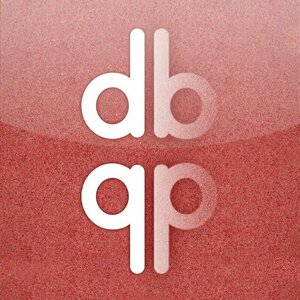
LetterReflex - Overcoming Letter Reversals & Backwards Writing in Early Childhood Development & Dyslexic Children
Medical and Education
App
(Ed. note: Be sure to also check out the new award-winning app Dexteria VMI.) #Featured in the App...
Debbiereadsbook (1669 KP) rated Made to Submit (La Trattoria Di Amore #3) in Books
May 12, 2021
I was surprised at this book, and I don't know why. I don't care, cos I loved it!
Independent reviewer for Archaeolibrarian, I was gifted my copy of this book.
This is book 3 in the La Trattoria Di Amore series, but it can be read as a stand alone. Indeed I am reading this one in the series first, and I didn't feel I missed anything. Something was cleared up from another book though, and I'll come back to that.
Paulo fell in love with Carl (book 2) at 15. He learned all he could about BDSM for Carl, and followed him to London a long time later, for carl to see the man he has become. But Carl has Adam, and Paulo is struggling. Being moved from one restaurant to another, to work under Kaden throws Paulo into a tailspin. Kaden has watched Paulo for a while. The young man does things to him that he didn't see coming. A simple taste test bring Paulo to Kaden's feet, and it's Kaden who is in a tail spin!
I started to read this book, just a few pages is the lie you tell yourself, before I had to get up and go about my day. Next thing, I've ran out of book and I have questions!
Questions, Ms Sayle, my mind has questions! However, I'm fully able to ask the single question I need to, but later. I thought you'd find that amusing :-)
Anyway, back to the book!
Oh, I loved this! Kaden needs to control everything, at work and at home. The guys he works with are attuned to his ways, but he's just a boss who likes things done just so, according to them. Paulo, however, makes Kaden want, so much. Want everything, if he's honest with himself, which at times, he isn't. Paulo brings out Kaden's Dom side, and Paulo? Oh Paulo is beautiful in his reaction to Kaden's words, his touches.
Paulo needs to work Carl out of his system, but very quickly Paulo realises that Carl was never really there. It was the IDEA of Carl, of what Carl could be for Paulo, that lodged all that long ago. And now Kaden has, quite literally, taken Paulo in hand, Paulo knows, he KNOWS that whatever he wanted with Carl would never be a patch on what Kaden can give him.
Paulo has been with other Doms before, but the level of control that Kaden needs is far higher than he had, but also, it's what he really needs. And it really is amazing watching these two find their footing, find their kink (which isn't as high a level as I was expecting, to be honest!) and to find out, what one takes, the other gives.
Back to my question! Does Smithy, Kaden's friend and mentor get a story? With Jesse, from the restaurant perhaps?? Jesse is hurting, and I want to know why!
And the point cleared up? Paulo appears in the Mine, Body and Soul trilogy. He's mean to Lenny in those books, and it was never cleared up why. I was curious. HERE, we get why. And you understand a bit better why Paulo treated Lenny the way he does.
I was surprised at this book, and I don't know why. I don't care, cos I loved it!
5 full and shiny stars
**same worded review will appear elsewhere**
This is book 3 in the La Trattoria Di Amore series, but it can be read as a stand alone. Indeed I am reading this one in the series first, and I didn't feel I missed anything. Something was cleared up from another book though, and I'll come back to that.
Paulo fell in love with Carl (book 2) at 15. He learned all he could about BDSM for Carl, and followed him to London a long time later, for carl to see the man he has become. But Carl has Adam, and Paulo is struggling. Being moved from one restaurant to another, to work under Kaden throws Paulo into a tailspin. Kaden has watched Paulo for a while. The young man does things to him that he didn't see coming. A simple taste test bring Paulo to Kaden's feet, and it's Kaden who is in a tail spin!
I started to read this book, just a few pages is the lie you tell yourself, before I had to get up and go about my day. Next thing, I've ran out of book and I have questions!
Questions, Ms Sayle, my mind has questions! However, I'm fully able to ask the single question I need to, but later. I thought you'd find that amusing :-)
Anyway, back to the book!
Oh, I loved this! Kaden needs to control everything, at work and at home. The guys he works with are attuned to his ways, but he's just a boss who likes things done just so, according to them. Paulo, however, makes Kaden want, so much. Want everything, if he's honest with himself, which at times, he isn't. Paulo brings out Kaden's Dom side, and Paulo? Oh Paulo is beautiful in his reaction to Kaden's words, his touches.
Paulo needs to work Carl out of his system, but very quickly Paulo realises that Carl was never really there. It was the IDEA of Carl, of what Carl could be for Paulo, that lodged all that long ago. And now Kaden has, quite literally, taken Paulo in hand, Paulo knows, he KNOWS that whatever he wanted with Carl would never be a patch on what Kaden can give him.
Paulo has been with other Doms before, but the level of control that Kaden needs is far higher than he had, but also, it's what he really needs. And it really is amazing watching these two find their footing, find their kink (which isn't as high a level as I was expecting, to be honest!) and to find out, what one takes, the other gives.
Back to my question! Does Smithy, Kaden's friend and mentor get a story? With Jesse, from the restaurant perhaps?? Jesse is hurting, and I want to know why!
And the point cleared up? Paulo appears in the Mine, Body and Soul trilogy. He's mean to Lenny in those books, and it was never cleared up why. I was curious. HERE, we get why. And you understand a bit better why Paulo treated Lenny the way he does.
I was surprised at this book, and I don't know why. I don't care, cos I loved it!
5 full and shiny stars
**same worded review will appear elsewhere**
BankofMarquis (1832 KP) rated A Quiet Place: Part II (2021) in Movies
Jun 3, 2021
A Good, Maybe Very Good, But Not Great Sequel
Did you enjoy the first A QUIET PLACE film? This horror/thriller from 2018 was unique in that it emphasized the suspense portion of the horror genre while relying, heavily, on sound (or the lack thereof).
The inevitable sequel picks up right where the first film ends, following the survivors of the first film as they make their way to a new “Quiet Place”…and, while not as unique as the first film, certainly holds its own as an entertainment and if you enjoyed the first one, you’ll enjoy this, the 2nd of what is promised to be a Trilogy.
Written and Directed by John Krasinski (who wrote and directed the first one) A QUIET PLACE PART II has an opening sequence (pre-credits) that is as good of an opening sequence as I have seen for quite some time (maybe all the way back to SAVING PRIVATE RYAN - it’s that good of an opening sequence). Again, Krasinski infuses sound (and the lack thereof) as he changes the focus of this opening scene from a deaf character (with the lack of sound) to non-deaf characters (with LOTS of sound). It is this juxtaposition of sound (and not sound) that makes an indelible impression. This opening scene is worth the price of admission all by itself.
And…that’s important… for the rest of the film is good, maybe even very good, but not great. Emily Blunt returns and is a formidable screen presence, but since this film focuses as much (if not more) on the 2 kids (Noah Jupe and Millicent Simmonds - more on them later), Blunt is relegated to a co-starring (and maybe a supporting) role, which is too little Emily Blunt in this film for my taste.
The always dependable Cillian Murphy is along for the ride this time around as a fellow survivor who has to work through some cowardice issues. While, at first, it looked like Murphy was putting in a “workmanlike, but unspectacular” performance, by the end of the film it becomes much, much better. A good, maybe even very good, but not great, performance.
As for the kids, Noah Jupe does a good, maybe even very good (but not great) performance, but that might be because Millicent Simmonds as the deaf child (she is a deaf actress herself) is REMARKABLE in her role - and this is needed for a large portion of this film follows her journey - and it is a journey worth watching. I hope this young actress gets a ton more work after these series of movies. I am going to be very interested in seeing her do other things.
Director Krasinski pulls many of the right levers in stringing out the audience - and the tension - throughout the film (though, as is often the case in these types of films, I wanted to yell at the screen a couple of times when characters did stupid things that you knew were gonna end up poorly for them). He, again, relies on suspense (and not gore) in scaring his audience and succeeds much more than he fails in this flim.
All-in-all, a movie that would be a wise choice to bring you back into the Cineplex. The (albeit small) crowd that saw the film in the theater I watched it in had more than 1 time where we all jumped and screamed together - and I realized that I had missed that.
Letter Grade: A-
8 stars (out of 10) and you can take that to the Bank(ofMarquis)
The inevitable sequel picks up right where the first film ends, following the survivors of the first film as they make their way to a new “Quiet Place”…and, while not as unique as the first film, certainly holds its own as an entertainment and if you enjoyed the first one, you’ll enjoy this, the 2nd of what is promised to be a Trilogy.
Written and Directed by John Krasinski (who wrote and directed the first one) A QUIET PLACE PART II has an opening sequence (pre-credits) that is as good of an opening sequence as I have seen for quite some time (maybe all the way back to SAVING PRIVATE RYAN - it’s that good of an opening sequence). Again, Krasinski infuses sound (and the lack thereof) as he changes the focus of this opening scene from a deaf character (with the lack of sound) to non-deaf characters (with LOTS of sound). It is this juxtaposition of sound (and not sound) that makes an indelible impression. This opening scene is worth the price of admission all by itself.
And…that’s important… for the rest of the film is good, maybe even very good, but not great. Emily Blunt returns and is a formidable screen presence, but since this film focuses as much (if not more) on the 2 kids (Noah Jupe and Millicent Simmonds - more on them later), Blunt is relegated to a co-starring (and maybe a supporting) role, which is too little Emily Blunt in this film for my taste.
The always dependable Cillian Murphy is along for the ride this time around as a fellow survivor who has to work through some cowardice issues. While, at first, it looked like Murphy was putting in a “workmanlike, but unspectacular” performance, by the end of the film it becomes much, much better. A good, maybe even very good, but not great, performance.
As for the kids, Noah Jupe does a good, maybe even very good (but not great) performance, but that might be because Millicent Simmonds as the deaf child (she is a deaf actress herself) is REMARKABLE in her role - and this is needed for a large portion of this film follows her journey - and it is a journey worth watching. I hope this young actress gets a ton more work after these series of movies. I am going to be very interested in seeing her do other things.
Director Krasinski pulls many of the right levers in stringing out the audience - and the tension - throughout the film (though, as is often the case in these types of films, I wanted to yell at the screen a couple of times when characters did stupid things that you knew were gonna end up poorly for them). He, again, relies on suspense (and not gore) in scaring his audience and succeeds much more than he fails in this flim.
All-in-all, a movie that would be a wise choice to bring you back into the Cineplex. The (albeit small) crowd that saw the film in the theater I watched it in had more than 1 time where we all jumped and screamed together - and I realized that I had missed that.
Letter Grade: A-
8 stars (out of 10) and you can take that to the Bank(ofMarquis)
Emeli Sande recommended track Take the Box by Amy Winehouse in Frank by Amy Winehouse in Music (curated)
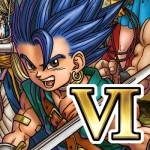
DRAGON QUEST VI
Games
App
Dragon Quest VI: Realms of Revelation , the final instalment in the Zenithian trilogy, is now...
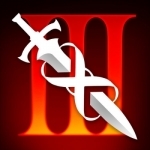
Infinity Blade III
Games and Entertainment
App
Join our new forums: https://www.epicgames.com/infinityblade/forums/ What the press is saying about...
BankofMarquis (1832 KP) rated Raya and the Last Dragon (2021) in Movies
Sep 25, 2021
Strong Animation and Voice Work overcome "Standard" Plot
One of the first films to be released (both in theaters and on-line) during the pandemic, RAYA AND THE LAST DRAGON came and went quickly - certainly ignored in the movie theaters, and with very little fanfare on-line.
And that’s too bad for RAYA AND THE LAST DRAGON is a fun, fantastical and visually rich tapestry that weaves together strong characters, a good lesson and enough action and comedy to keep young and old alike engaged throughout.
RAYA tells the story of the land of Kumandra, a realm that was inspired by Southeast Asian countries (such as Thailand, Malaysia and Indonesia) a land that is split into 5 parts that each face the same threat, but instead of banding together to fight this threat, they are splintered and selfish and look out only for their own - with little to no regard of the consequences to others.
Sound familiar? While the film was imagined and realized before the pandemic, the themes of this film reverberate strongly in this post-pandemic world that we live in.
Into this world drops Raya who, when betrayed by one she sees as a friend, sets out on a quest to find the last dragon and unify the 5 lands. It’s a typical “quest film” but one that is told with such heart and charm - with strong voice characters and beautiful animation - that I was won over by it.
Kelly Marie Tran (Rose Tico in the latest STAR WARS trilogy) brings Raya’s voice to life and it is a one that is embodied with hope, naivete and strength and really makes you root for her character. The voice work by the likes of Gemma Chan (CRAZY, RICH ASIANS), Benedict Wong (DR. STRANGE), DANIEL DAE KIM (TV’s LOST) and Sandra OH (TV’s GREY’S ANATOMY) are all as equally strong and nuanced and draws you into each of their characters and the story.
And then there is Awkwafina (SHANG-CHI) as the voice of The Last Dragon - she is on another level. It is not hyperbole to say that this voicework/character is on a par with David Spade’s work as Kuzco in THE EMPEROR’S NEW GROOVE and much like Spade, she ad-libbed much of her dialogue. It’s not quite at the level of Robin Williams in ALADDIN, but it’s in that ballpark - it is that good. This character makes or breaks this film and AWKWAFINA nails it - and makes the film.
This film is a “non-Musical” and I think that works well here. While this choice may turn off some families from viewing, this choice makes it a stronger film and is the right selection.
And then, there is the animation, which is even more impressive considering it was created from the animators in their homes during the pandemic. RAYA AND THE LAST DRAGON is a visual feast, weaving imagery and beautifully animated scenes throughout - I applaud those that made this incredibly beautiful film under such adverse conditions, it is a triumph.
All-in-all RAYA AND THE LAST DRAGON is well worth checking out, despite the plot being rather “standard”, the themes, characters, voice work and animation are all top notch - what one has come to expect from Disney Animation.
Letter Grade: A- (did I mention that the plot is rather “standard”)
8 Stars (out of 10) and you can take that to the Bank(ofMarquis)
And that’s too bad for RAYA AND THE LAST DRAGON is a fun, fantastical and visually rich tapestry that weaves together strong characters, a good lesson and enough action and comedy to keep young and old alike engaged throughout.
RAYA tells the story of the land of Kumandra, a realm that was inspired by Southeast Asian countries (such as Thailand, Malaysia and Indonesia) a land that is split into 5 parts that each face the same threat, but instead of banding together to fight this threat, they are splintered and selfish and look out only for their own - with little to no regard of the consequences to others.
Sound familiar? While the film was imagined and realized before the pandemic, the themes of this film reverberate strongly in this post-pandemic world that we live in.
Into this world drops Raya who, when betrayed by one she sees as a friend, sets out on a quest to find the last dragon and unify the 5 lands. It’s a typical “quest film” but one that is told with such heart and charm - with strong voice characters and beautiful animation - that I was won over by it.
Kelly Marie Tran (Rose Tico in the latest STAR WARS trilogy) brings Raya’s voice to life and it is a one that is embodied with hope, naivete and strength and really makes you root for her character. The voice work by the likes of Gemma Chan (CRAZY, RICH ASIANS), Benedict Wong (DR. STRANGE), DANIEL DAE KIM (TV’s LOST) and Sandra OH (TV’s GREY’S ANATOMY) are all as equally strong and nuanced and draws you into each of their characters and the story.
And then there is Awkwafina (SHANG-CHI) as the voice of The Last Dragon - she is on another level. It is not hyperbole to say that this voicework/character is on a par with David Spade’s work as Kuzco in THE EMPEROR’S NEW GROOVE and much like Spade, she ad-libbed much of her dialogue. It’s not quite at the level of Robin Williams in ALADDIN, but it’s in that ballpark - it is that good. This character makes or breaks this film and AWKWAFINA nails it - and makes the film.
This film is a “non-Musical” and I think that works well here. While this choice may turn off some families from viewing, this choice makes it a stronger film and is the right selection.
And then, there is the animation, which is even more impressive considering it was created from the animators in their homes during the pandemic. RAYA AND THE LAST DRAGON is a visual feast, weaving imagery and beautifully animated scenes throughout - I applaud those that made this incredibly beautiful film under such adverse conditions, it is a triumph.
All-in-all RAYA AND THE LAST DRAGON is well worth checking out, despite the plot being rather “standard”, the themes, characters, voice work and animation are all top notch - what one has come to expect from Disney Animation.
Letter Grade: A- (did I mention that the plot is rather “standard”)
8 Stars (out of 10) and you can take that to the Bank(ofMarquis)
